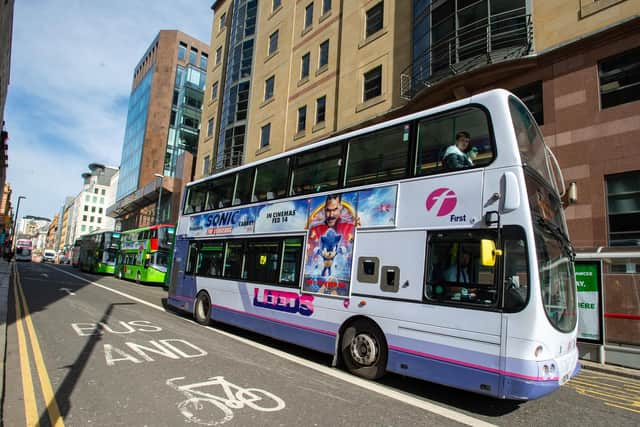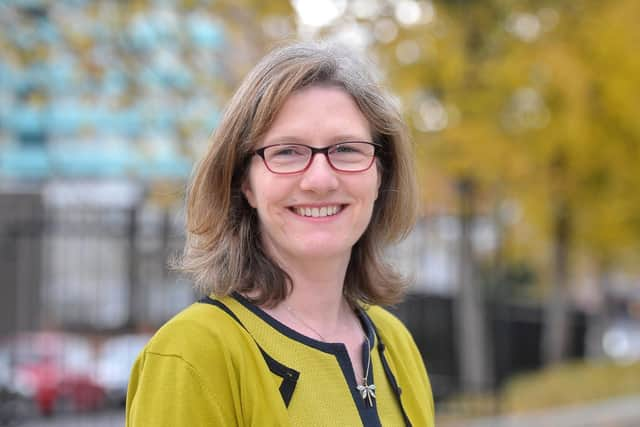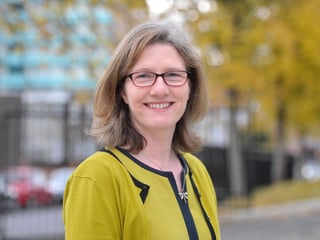Cheaper public transport is both goal and challenge for Connecting Leeds Transport Strategy
and live on Freeview channel 276
Currently out to public consultation, the draft Connecting Leeds Transport Strategy seeks to tackle climate change, deliver inclusive growth, and improve the health and wellbeing of all those who live and work in the city.
It sets out a raft of measures intended to to address many of the concerns raised by Yorkshire Evening Post readers about the daily blight of congestion and unreliable public transport that prompted the launch of our Unlock the Gridlock campaign in January 2020.


Advertisement
Hide AdAdvertisement
Hide AdIn her foreword to the draft strategy, council leader Judith Blake writes: "We have started to take action to address the levels of congestion, crowding and unreliability on our transport network. However, there is more that can be done to improve everyone’s experience of travel in our city.
"There is no single solution. We need to continue to get people to move away from their cars to deliver an affordable, reliable, safe and zero carbon public transport network for the city which supports streets for people and unlocks the power of transport for a fairer, greener and more prosperous Leeds."
The results of an earlier Big Leeds Climate Conversation showed 94 per cent of respondents agreed that tackling climate change should be a priority, meaning there is likely to be widespread support for reducing the reliance on cars and opting for greener choices in theory.
Making that work in practice is going to rely on addressing the various reasons people choose to drive in the first place though, including the perception that public transport is overpriced for the quality of services provided.


Advertisement
Hide AdAdvertisement
Hide AdIt means the council must also find ways to persuade those in charge of setting bus and rail fares - private operators and central government - that by reducing prices, they will encourage greater use and, ultimately, generate more revenue.
Greg Marsden, a professor of transport governance at the University of Leeds' Institute of Transport Studies, is among the experts on the Leeds Transport Advisory Panel set up to advise and challenge the council on its strategy.
He said: "It's absolutely about getting more people on [public transport]. A full bus with multiple fee-paying customers on there is easier to finance so you can lower prices.
"It's a virtuous circle - the more people that use it, the more services you get, the more frequent the services become, and the cheaper it is to use it. In the past, in many areas, we actually had the opposite."
Advertisement
Hide AdAdvertisement
Hide AdHe added: "It's really important we put things in place to attract more people to use it."
Getting those things in place may not be in the direct control of the local authority, but executive member for transport Coun Lisa Mulherin pointed to the work of West Yorkshire Combined Authority (WYCA) as evidence that it can be done.
She said: "WYCA have been very successful over the last few years, particularly in reducing the cost for young people; young people looking to make their first journeys to work and college.
"They've been very good at leveraging transport operators to bring prices down."
Advertisement
Hide AdAdvertisement
Hide AdThe consultation on the draft strategy will run until March 26, before the feedback from the public and other stakeholders is reviewed. An updated strategy is then expected to be published in early summer.
Visit leedstransportstrategy.commonplace.is/ to learn more about the proposals, read the draft strategy in full or make comments.
Support the YEP and become a subscriber today. Enjoy unlimited access to local news and the latest on Leeds United. With a digital subscription, you see fewer ads, enjoy faster load times, and get access to exclusive newsletters and content. Click here to subscribe.
